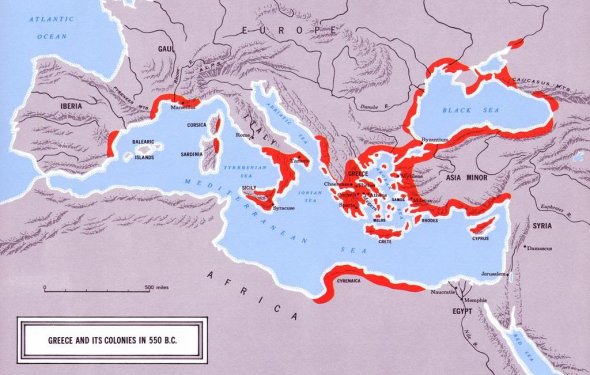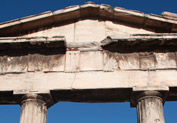About Greece History

 Greece is a country with a very rich history and the homeland of many famous personalities throughout centuries. This section proposes information about the history of Greece: from Stone and Bronze age to the Twentieth century, but also information about other historical facts: famous quotes, famous personalities of ancient Greece, Olympic games, flags, archaeological sites, historical monuments and Unesco Sites in Greece. We also propose information about history of Greece for many locations and Greek islands.
Greece is a country with a very rich history and the homeland of many famous personalities throughout centuries. This section proposes information about the history of Greece: from Stone and Bronze age to the Twentieth century, but also information about other historical facts: famous quotes, famous personalities of ancient Greece, Olympic games, flags, archaeological sites, historical monuments and Unesco Sites in Greece. We also propose information about history of Greece for many locations and Greek islands.
Excavations show that the first settlement in Ancient Greece dates from the Palaeolithic era (11, 000-3, 000 BC). During the second millennium BC, Greece gave birth to the great stone and bronze civilization: the Minoans (2600-1500 BC), the Mycenaeans (1500-1150 BC) and the Cycladic civilization. These were the first important civilizations in the Greek history.
 The Classical Period (6th-4th century BC) is very famous worldwide. The peak of the classical period is the 5th century BC, when the foundations of the western civilization were created in Athens. This city-state became the greatest naval power of ancient Greece that time and developed all domains of culture, including philosophy, music, drama, rhetoric and even a new regime called democracy. It is not exaggerating to say that this period changed the history of the world.
The Classical Period (6th-4th century BC) is very famous worldwide. The peak of the classical period is the 5th century BC, when the foundations of the western civilization were created in Athens. This city-state became the greatest naval power of ancient Greece that time and developed all domains of culture, including philosophy, music, drama, rhetoric and even a new regime called democracy. It is not exaggerating to say that this period changed the history of the world.
Athens and Sparta were the most powerful city-states in ancient Greece and the other city-states were actually allied to one or the other of these two towns. In the 5th century, the allied Greek city-states managed to repel the invasion of the Persians. However, the Peloponnesian War that followed, between Athens and Sparta, led to the decline of the glorious classical era.
 That was when the kingdom of Macedon, a tribe residing in northern Greece, came to power defeating and conquering the other Greek city-states. After the death of king Phillip II, his son Alexander started a large expedition in Asia. In 334 BC, Alexander the Great invaded the Persian Empire and his army conquered all the way till India. However, in 323 BC, he dies in Babylon at the age of 33 and his Macedonian empire is torn apart and governed by his heirs.
That was when the kingdom of Macedon, a tribe residing in northern Greece, came to power defeating and conquering the other Greek city-states. After the death of king Phillip II, his son Alexander started a large expedition in Asia. In 334 BC, Alexander the Great invaded the Persian Empire and his army conquered all the way till India. However, in 323 BC, he dies in Babylon at the age of 33 and his Macedonian empire is torn apart and governed by his heirs.
 From 168 BC and onwards, the Romans conquer Greece and a new period starts for the Greek history. This is actually the period where ancient Greece turns into Roman Greece. That time, the country becomes the field of many important battles and new cities are constructed, such as Nikopolis in western Greece. Athens and generally the Greek culture declines, but the Greek becomes a second official language for the Roman Empire. The Romans read the classical philosophers and base their religion on the Olympian gods. In the 3rd century AD, the powerful Roman Empire starts to decline and it is divided in two pieces, the Eastern and the Western Roman Empire.
From 168 BC and onwards, the Romans conquer Greece and a new period starts for the Greek history. This is actually the period where ancient Greece turns into Roman Greece. That time, the country becomes the field of many important battles and new cities are constructed, such as Nikopolis in western Greece. Athens and generally the Greek culture declines, but the Greek becomes a second official language for the Roman Empire. The Romans read the classical philosophers and base their religion on the Olympian gods. In the 3rd century AD, the powerful Roman Empire starts to decline and it is divided in two pieces, the Eastern and the Western Roman Empire.
While the Western Roman Empire was gradually conquered by barbaric North-European tribes, the Eastern Roman Empire with Constantinople (Byzantium) as capital developed and was turned into the Byzantine Empire that lasted for about 1, 000 years. At this point of history, Christianity becomes the official religion of the new empire, new territories are occupied and new state laws are formed. These laws will later constitute the first laws of the modern Greek state, as it will be formed in the 19th century.



